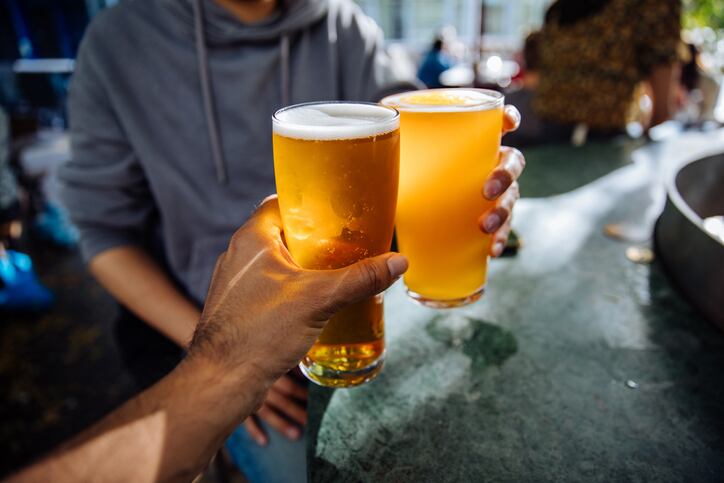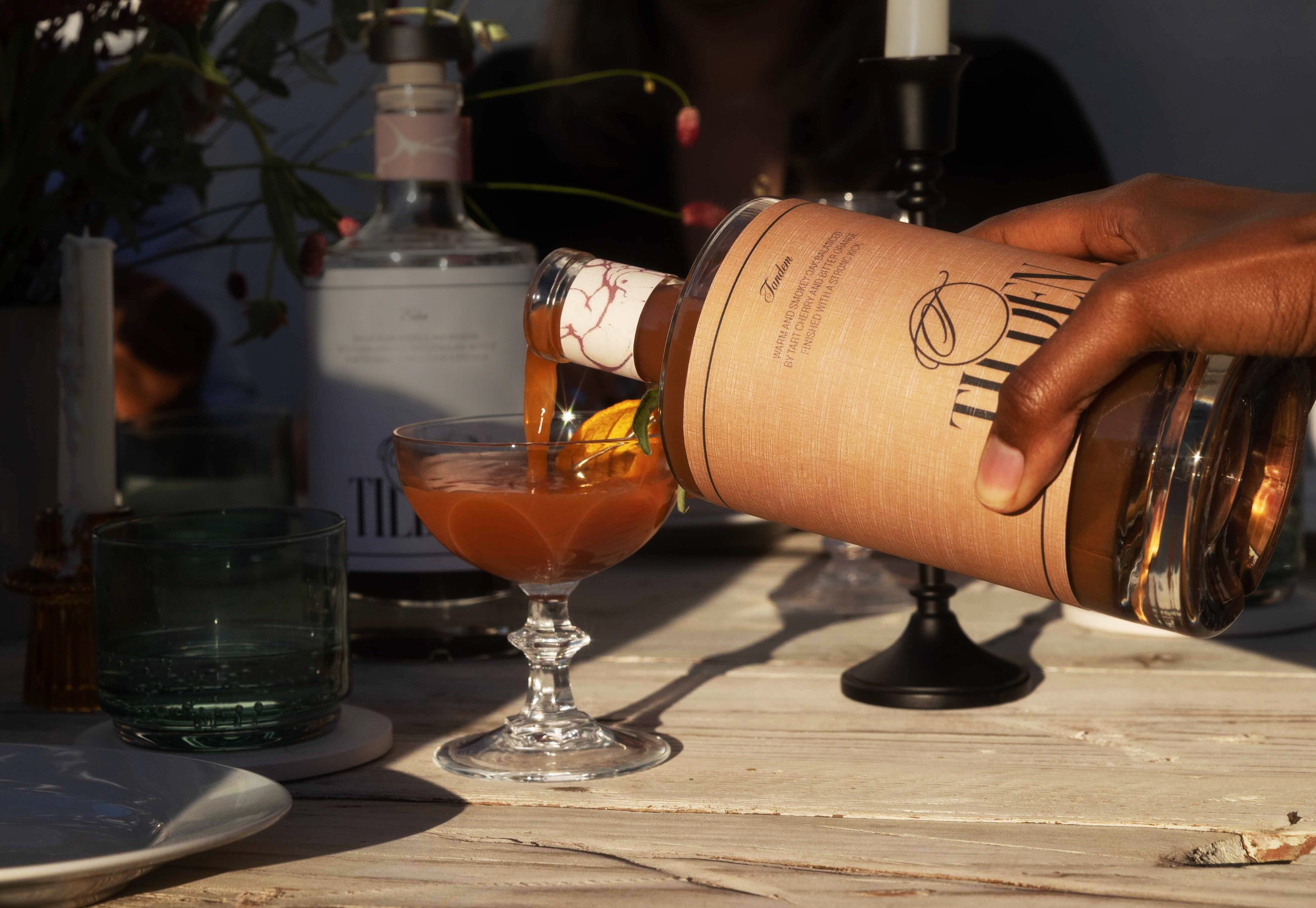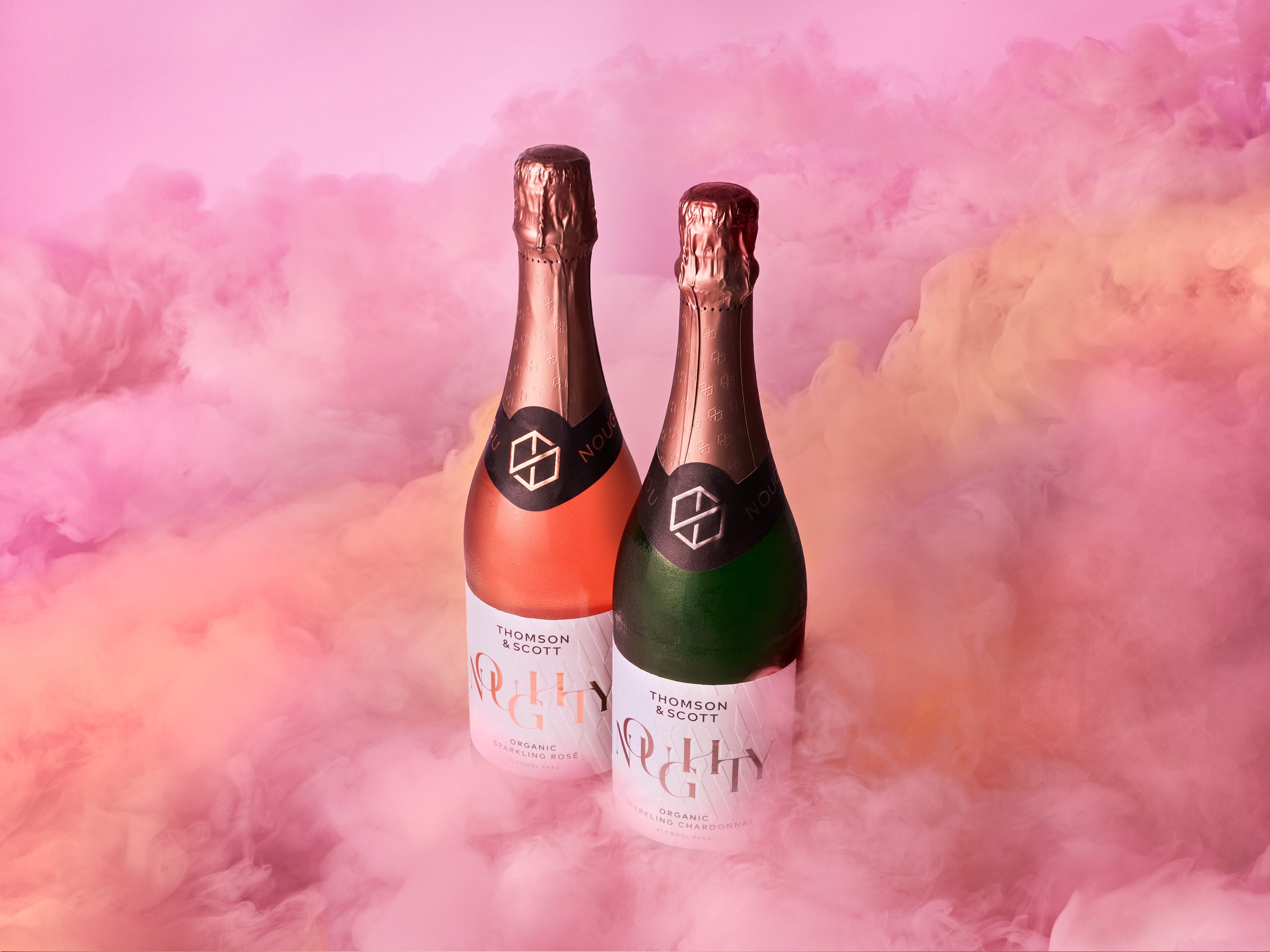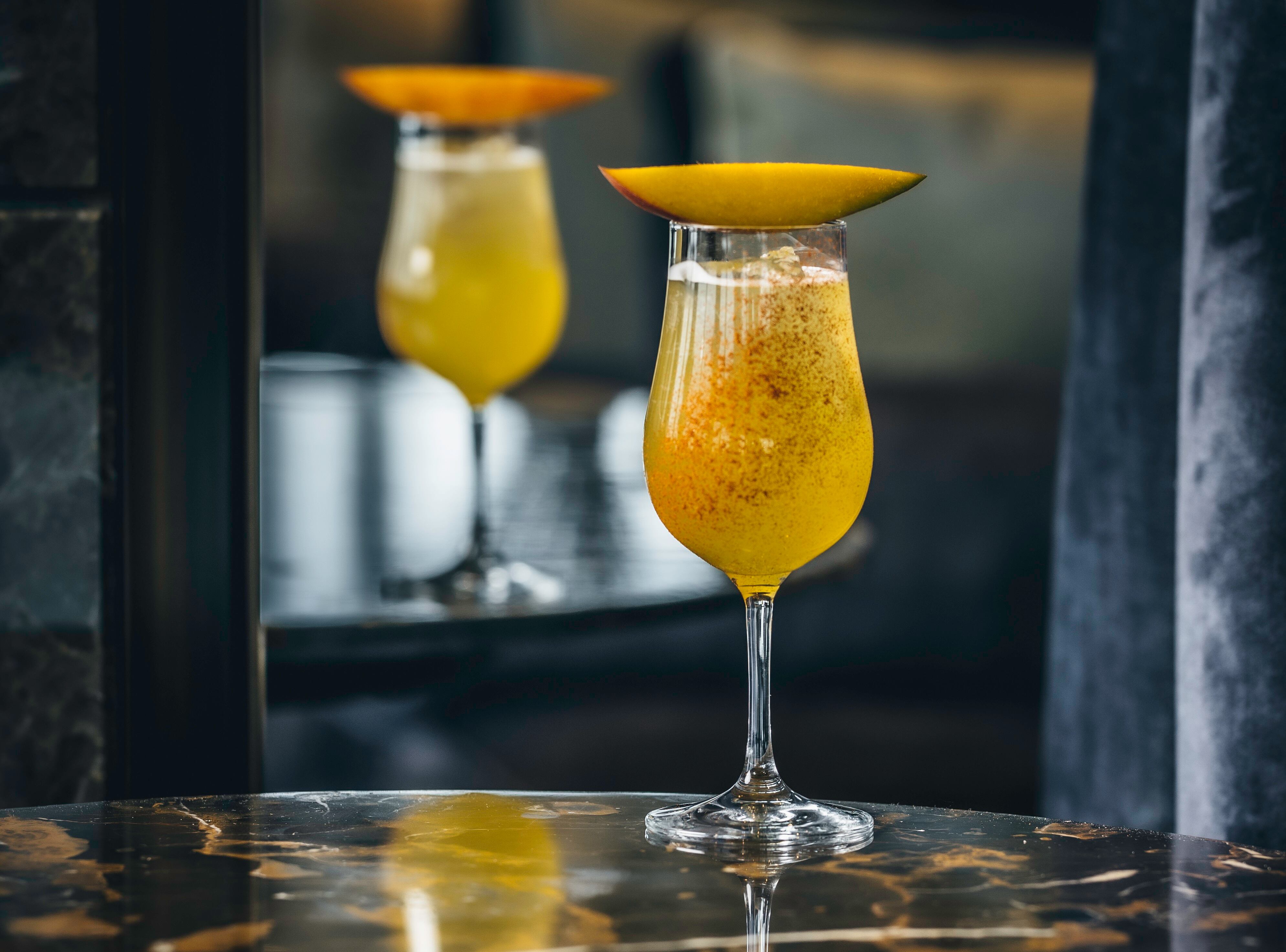Ten years ago, non-alcoholic beer basically meant a bottle of Becks Blue. But today, beer drinkers who want to avoid or cut down on alcohol are blessed with a flavour packed range of hoppy craft IPA’s, milk stouts, crisp lagers, and traditional ales. The category is one of the fastest growing in the entire food and drinks industry.
So, as we leave another Dry Jan behind, I’ve been discussing the latest non-alcoholic beer trends with beer industry experts.
Firstly, is Dry Jan still relevant?
Dry Jan is done for another year. Those choosing to cut down on their booze for one month a year have safely returned to their normal drinking habits. But, given the rapid increase in non-alcoholic beer and an increasing culture of moderation, the trend to cut back throughout the year may well replace a 31-day abstinence.
Google searches for ‘Dry Jan’ were down this year and specialist non-alcoholic beer brands like Big Drop are seeing less of a January peak in their sales, versus previous years.
For younger consumers, who tend to demonstrate a more controlled attitude towards diet and lifestyle versus previous generations, switching between full and lower strength beer for different occasions comes very naturally.
Added to this, as Greene King’s David Spencer pointed out to me, younger drinkers don’t have memories of poor-quality non-alcoholic beer. The negativity isn’t there.
What’s happening at the bar?
Non-alcoholic beer has grown far quicker in the off-trade than the on-trade. But it’s becoming clear that widely available draft is the next hurdle for non-alcoholic beer, and perhaps the holy grail. After all, beer is always best on tap.
So, will we reach a point when every good pub or bar has a 0% beer on tap? Brands like Lucky Saint certainly seem to be on a mission to make this a reality. They’ve seen huge growth in their unfiltered lager on tap, and last month opened a first Lucky Saint pub in London.
James Kindred, Founder of Big Drop, the UK’s first specialist 0.5% brewer and who are also on an off-trade drive, is aiming to get to a place when consumers don’t even mention ‘abv’ when ordering at the bar. Acknowledging we’re not there yet, he’d like people to simply order a “Carlsberg, a Stella and a Big Drop”. Big Drop is all about the clarity that a pure non-alcoholic beer brand provides, versus the bigger global beer brands who have 0% versions of their existing products e.g. Heineken and BrewDog.
For James, having specialist non-alcoholic brands, with a range of quality beers for consumers to recognise and buy into, is the key for building the on-trade’s confidence in the category.
Addressing the elephant in the room
The great thing about non-alcoholic beer is that it doesn’t have alcohol in it. Obviously. But whist this is the whole point for people looking to cut down on booze, there is an elephant in the room. Non-alcoholic beer doesn’t give you any of the positive attributes of a stiffer drink. There’s no relaxing feeling that a lot of drinkers enjoy.
But… beer innovators have been working on this challenge.
Mark Wong, founder of IMPOSSIBREW suggests that “whilst there are a lot of 0% beers out there, of varying quality…almost all have ignored why we drink in the first place”. He believes the critical factor is ‘how it makes you feel… with taste coming in as a very close second.” With innovative naturally active ingredients, IMPOSSIBREW aims to be a ‘complete beer-like experience’, without the alcohol. That means “you get the similar relaxing sensation as a boozy brew, but without alcohol. Plus, you don't have to worry about the calories or the hangover.”
It’s a fascinating product proposition, and it will be interesting to see if other non-alcoholic beer brands attempt to innovate in this space. If they do, perhaps a new sub-category could be created, and this may in turn compete with CBD drinks and other forms of non-alcoholic relaxation.
Opening new doors for brands
There was a striking moment during Euro 2020, when French midfielder Paul Pogba removed a bottle of Heineken from the table in front of his post-match interview. Pogba is a devoted Muslim, and does not drink alcohol.
The scrutiny and regulations around alcohol brand sponsorships in sport has risen over the last few years, and will surely continue to do so, especially as the Middle East continues to increase its influence over world sports.
But, non-alcoholic beers can help solve this issue, and help major global brands like Heineken and Budweiser continue to have a voice, whatever the sport, and whatever the region. Heineken’s sponsorship of F1 is fronted by its highly successful 0.0% product, allowing the brand to associate its image with the sport and capitalise on its thriving global popularity.
Similarly, when Heineken became the UEFA Europa League sponsor in 2020, it used its 0.0% beer, the largest ever single sponsorship deal involving a non-alcoholic beer brand. And Bud Zero was front and centre in Budweiser’s World Cup sponsorship in Qatar last year.
Ultimately, non-alcoholic beer can go to places full strength beers can’t, extending reach, and growing audiences.
So, just how big can it get?
I put this question to a range of industry experts, and the answer is big. Very big.
UK sales in non-alcoholic beers have essentially doubled in the past 5 years. And the category grew 35% in value from 2020 to 2021. IWSR Drinks Market Analysis suggest the category will grow a further 12% every year in the UK, through to 2026. James Kindred expects non-alcoholic beer to account for 10% of total UK beer sales before long. Extraordinary, given it was 0.2% a few years ago. And Global Insights predicated a global value for the category by 2025 of a staggering $43bn.
So, for beer lovers, who are also looking to drink less alcohol, the future is very bright indeed. In the words of Big Drop’s James Kindred, “the sky is the limit”.
Jamie Williams is Managing Partner of creative agency isobel and a member of the British Guild of Beer Writers.




